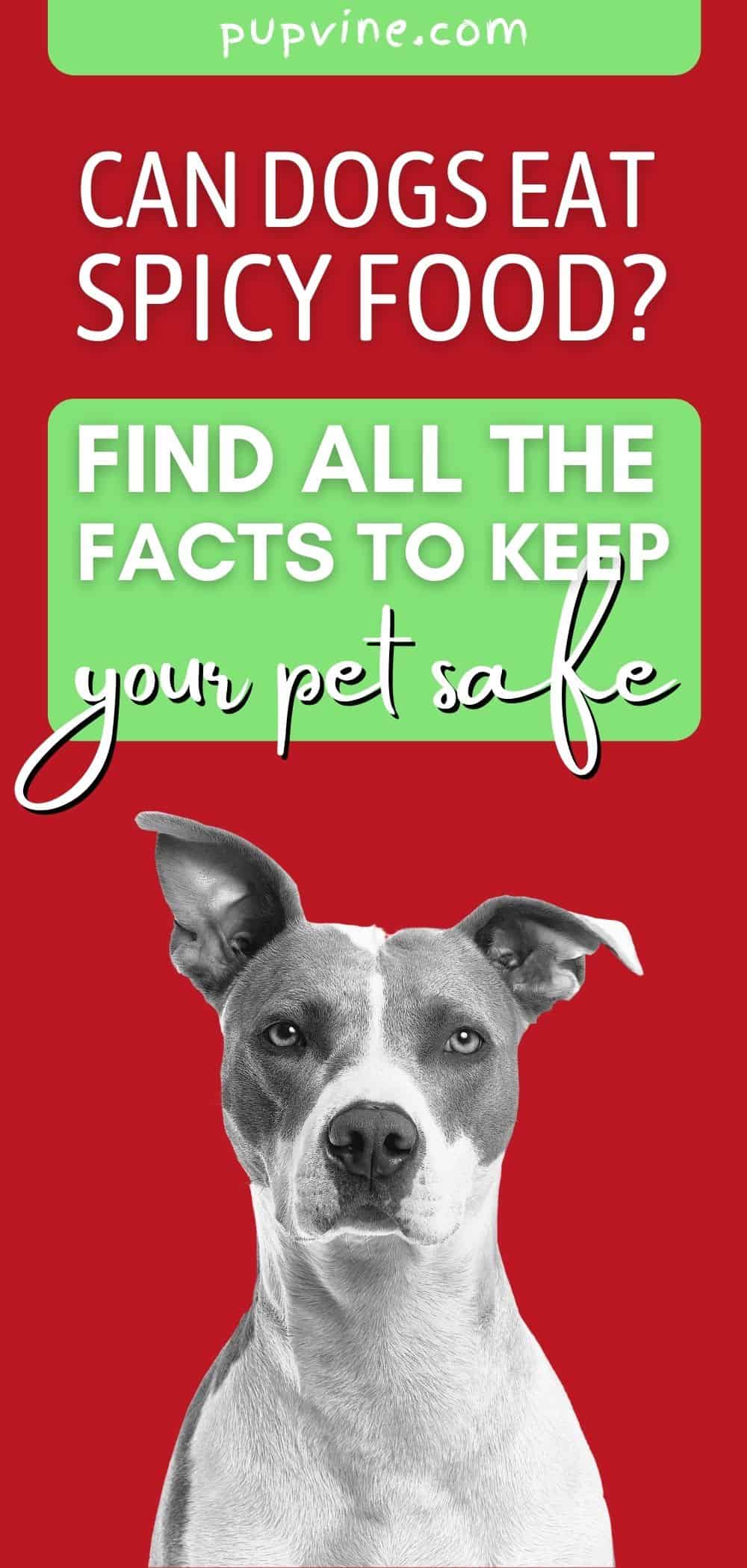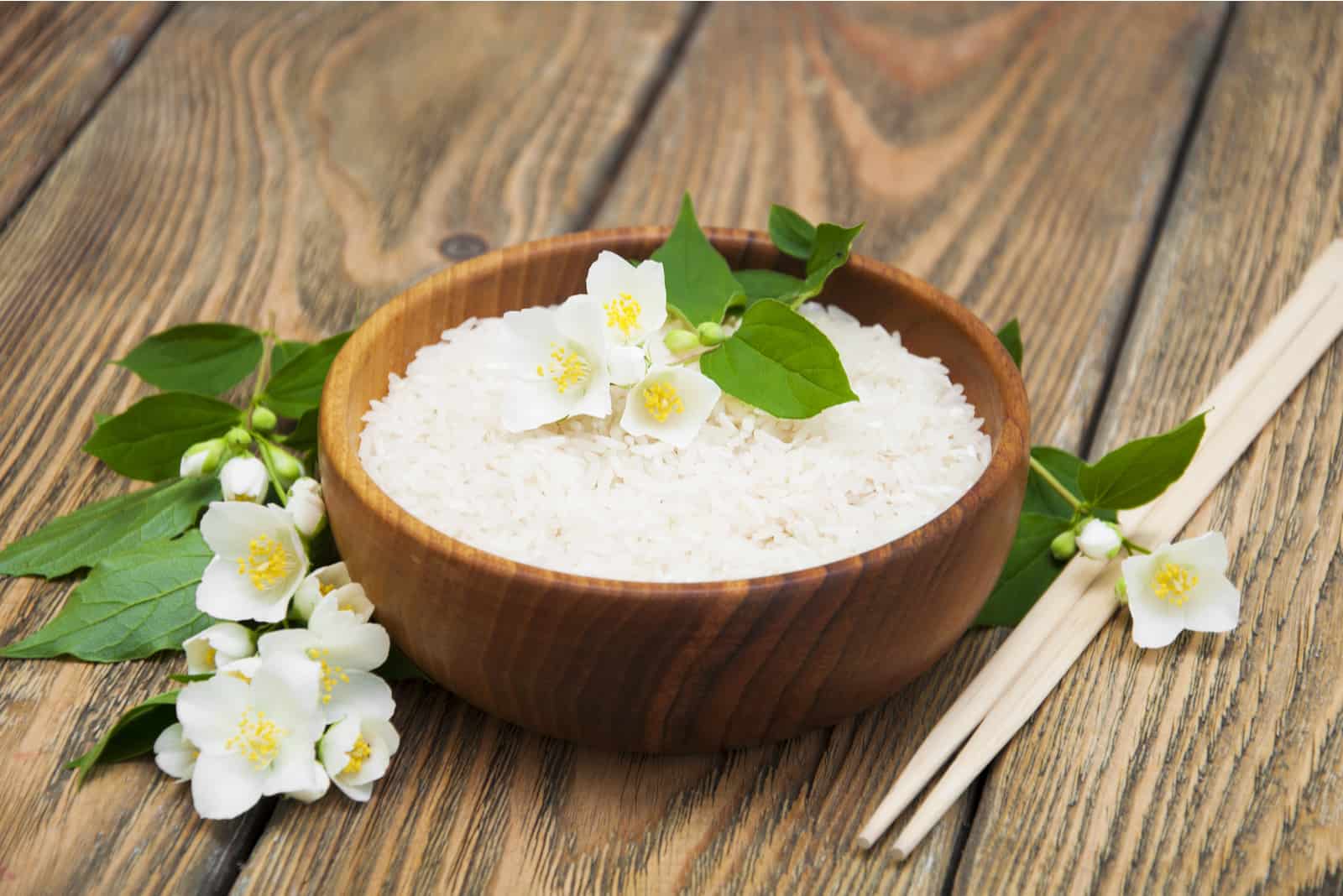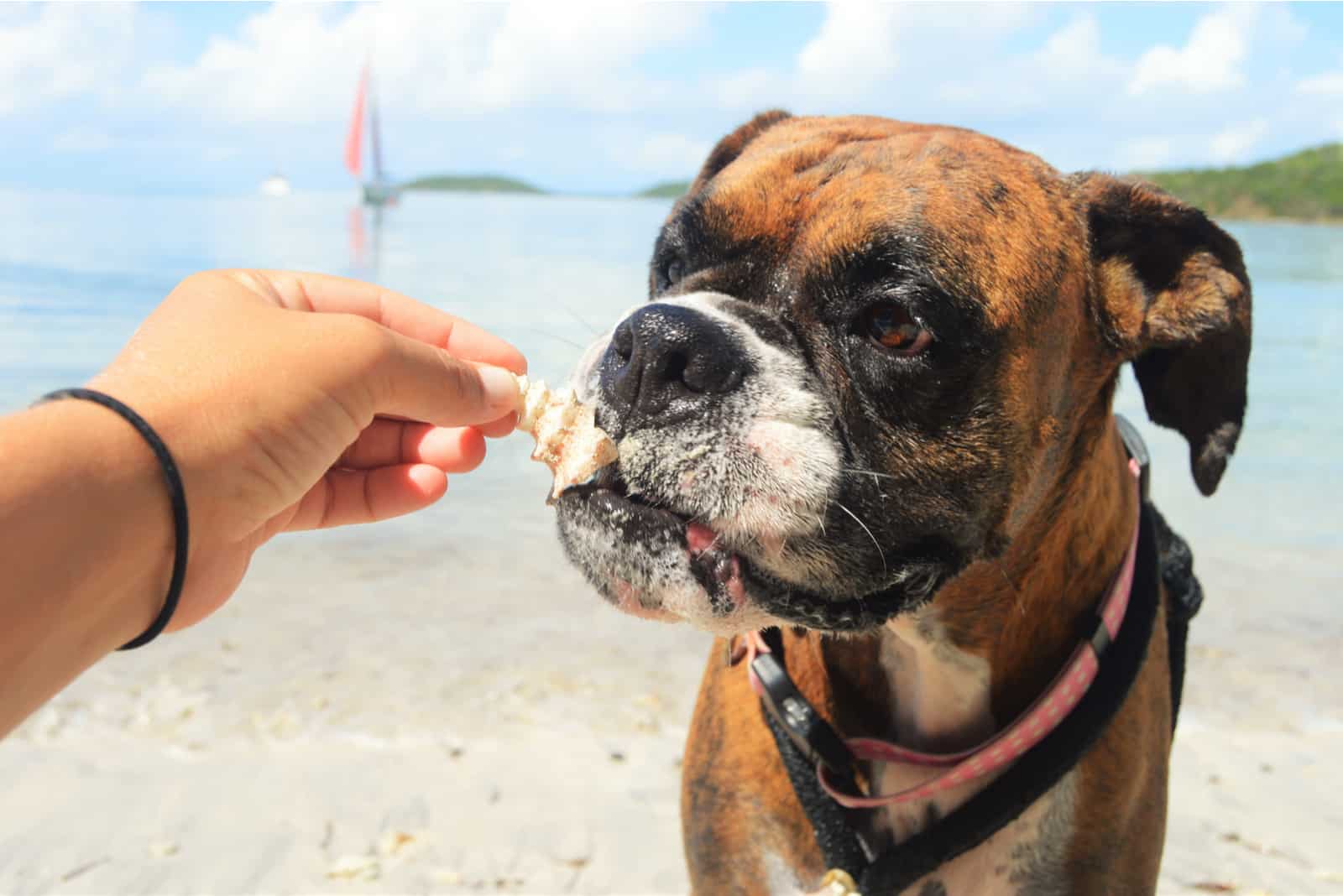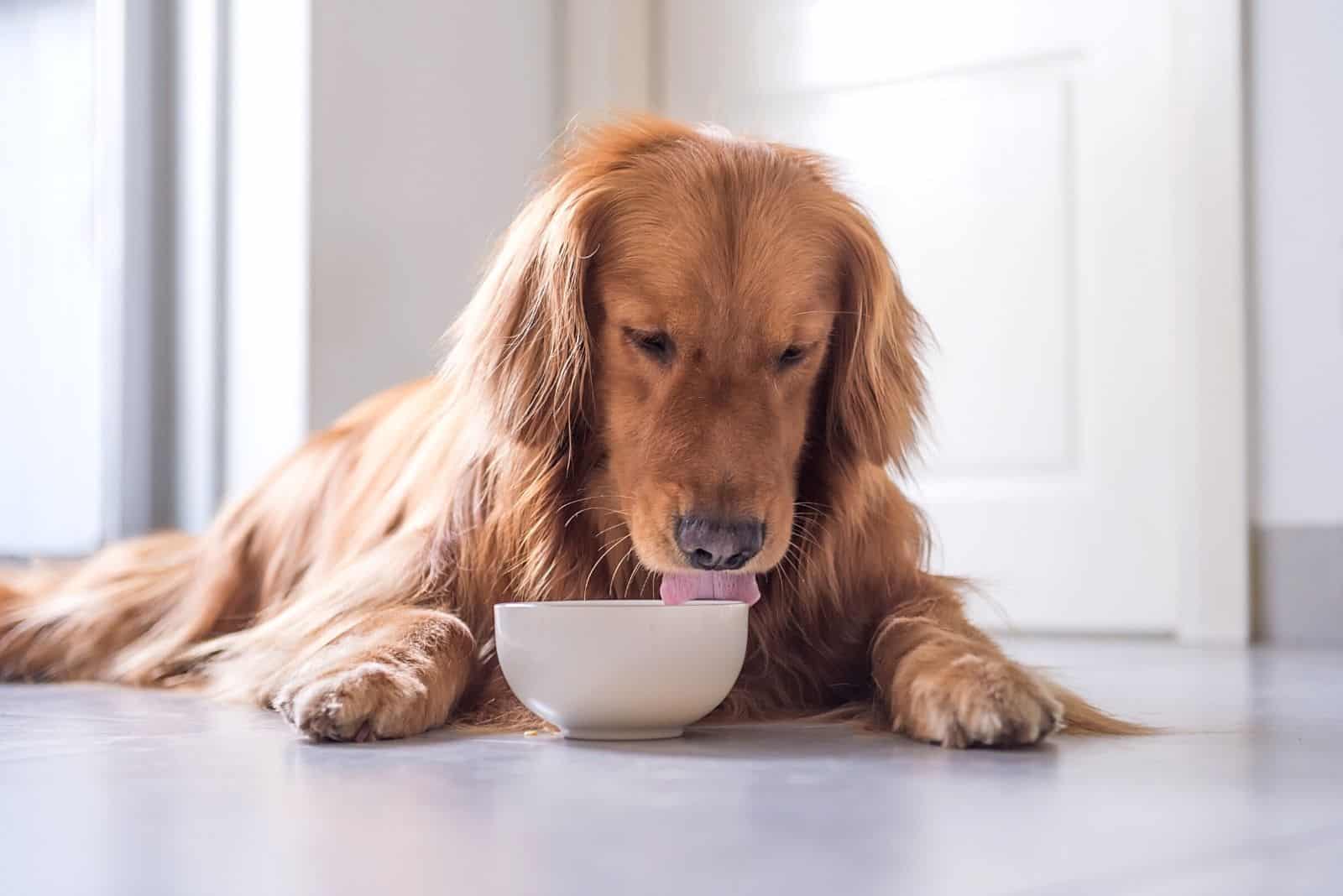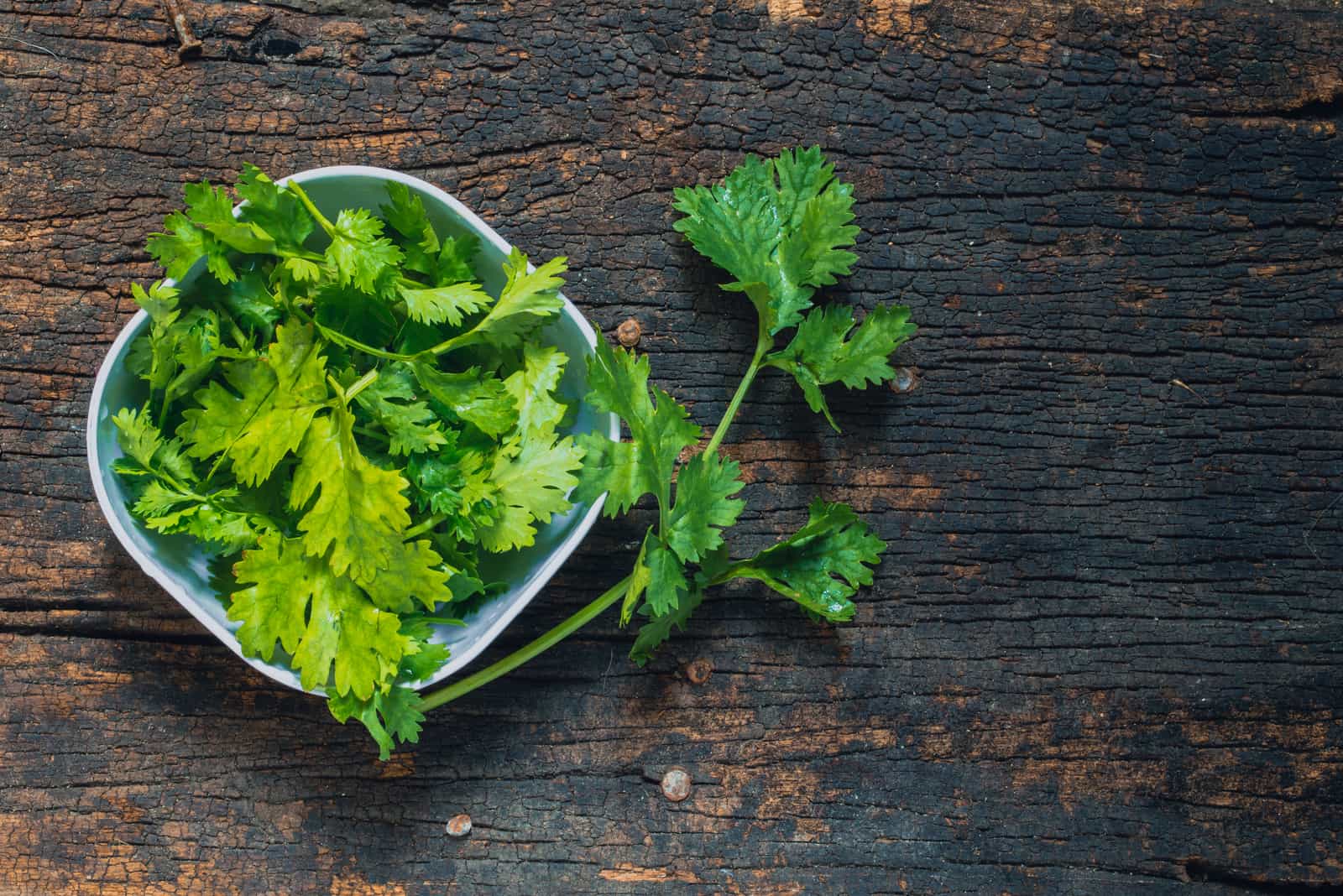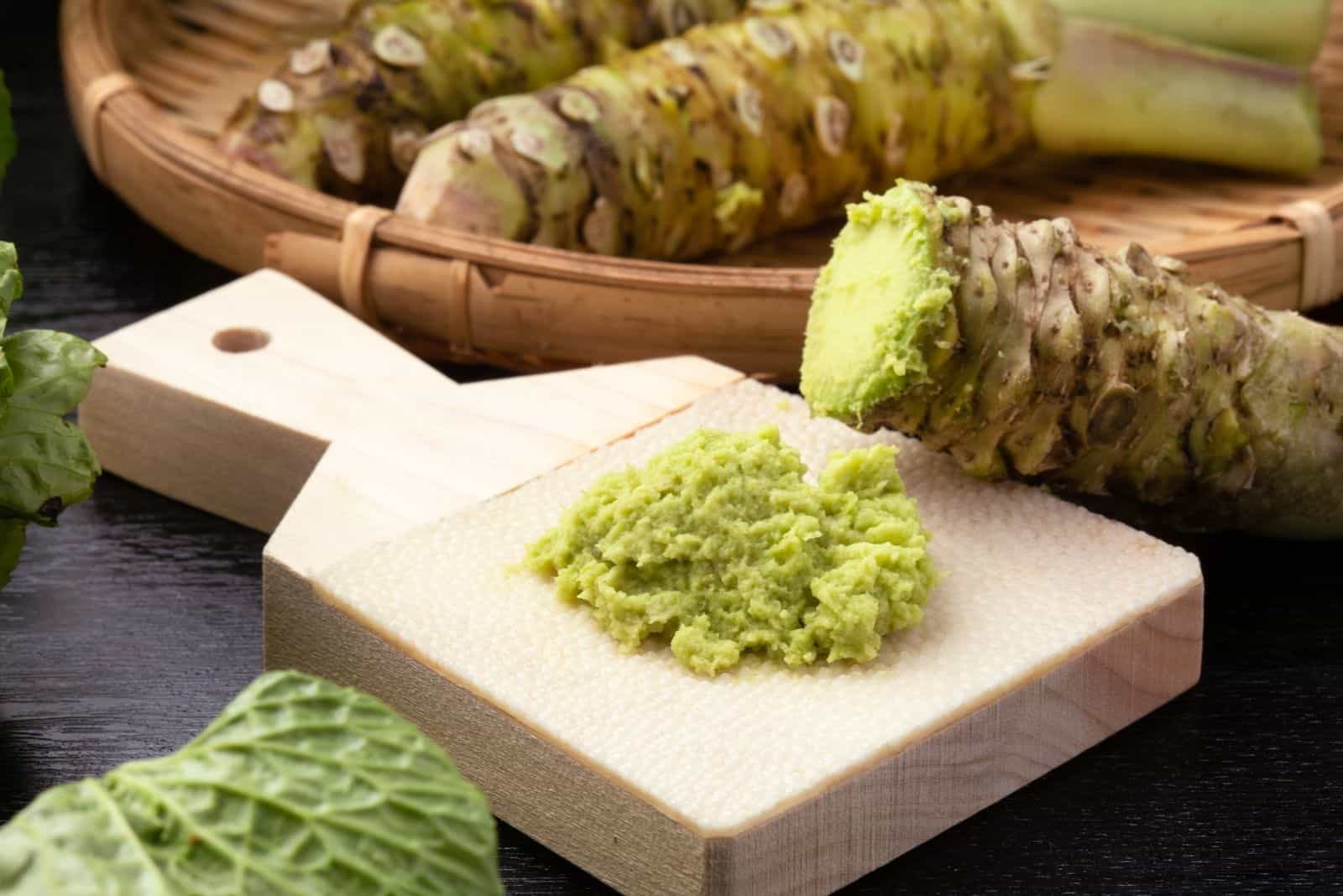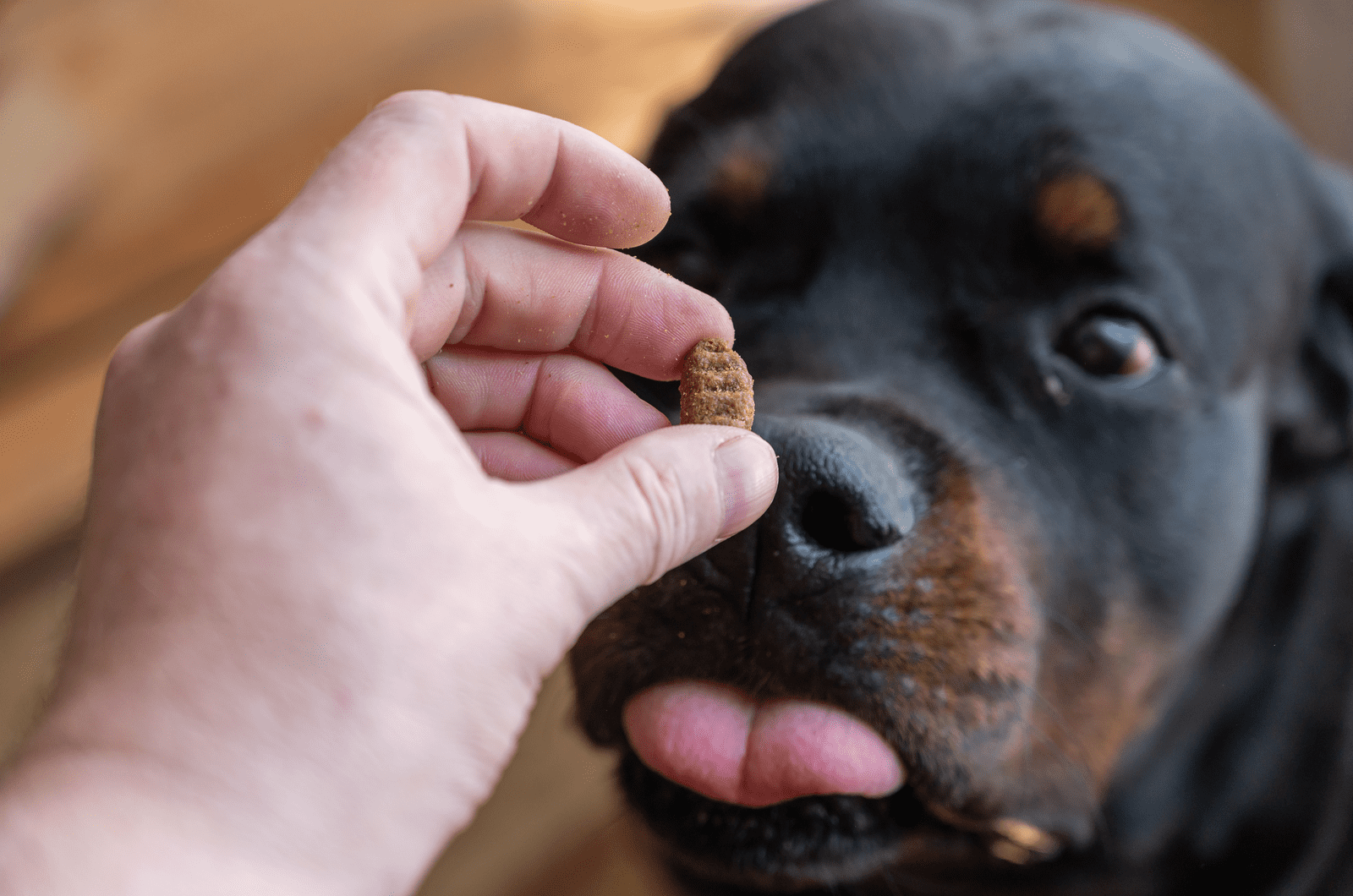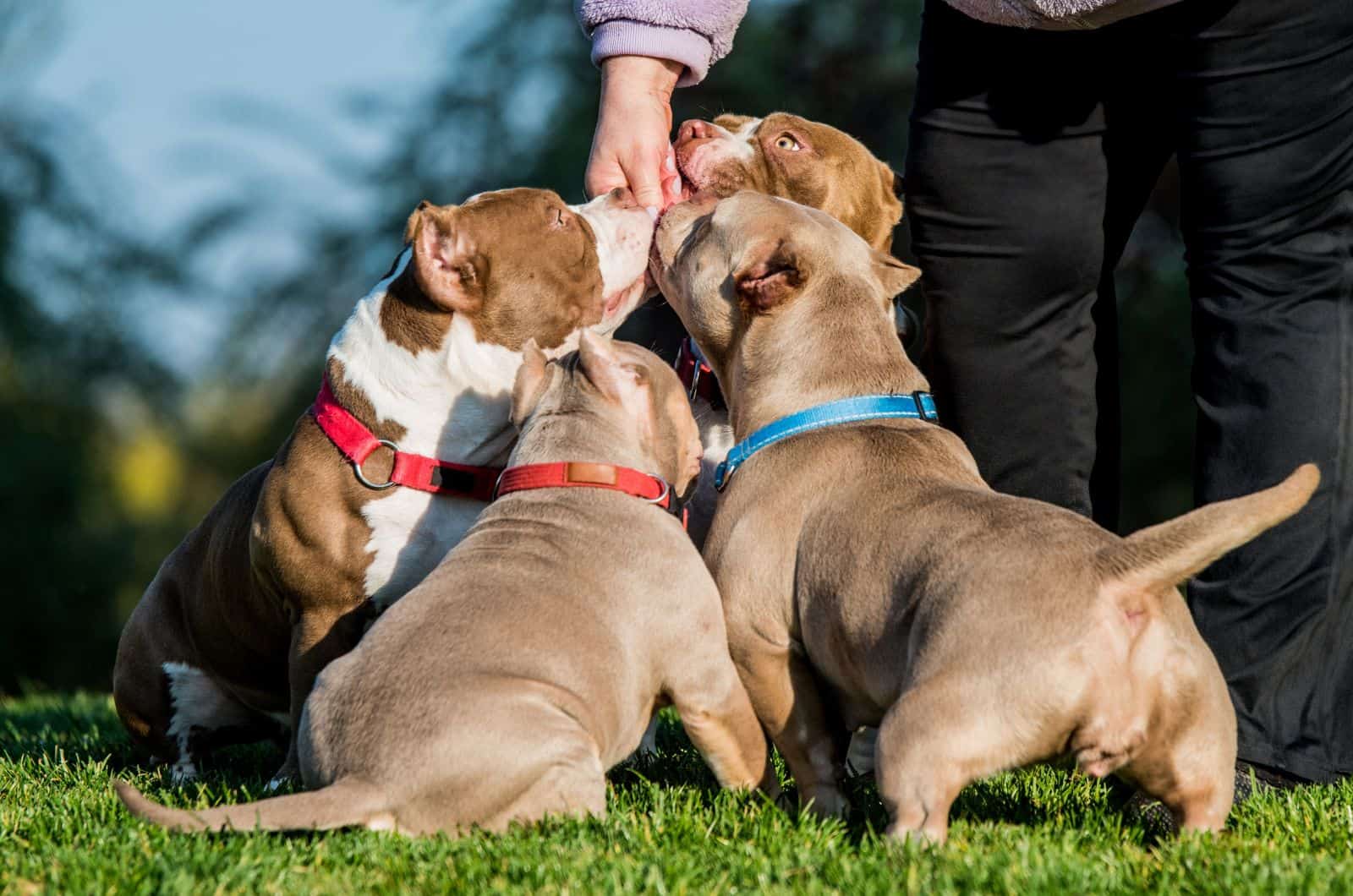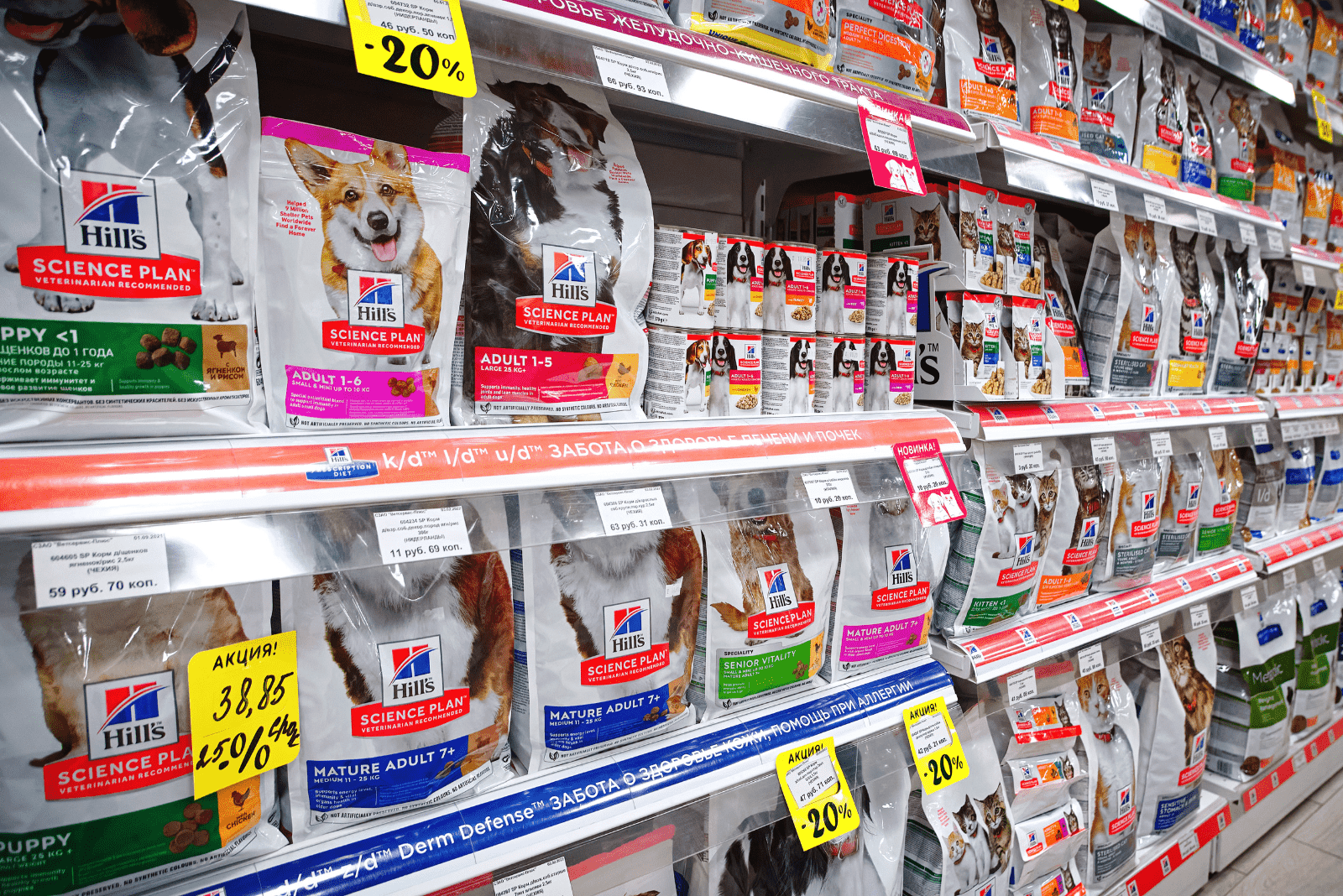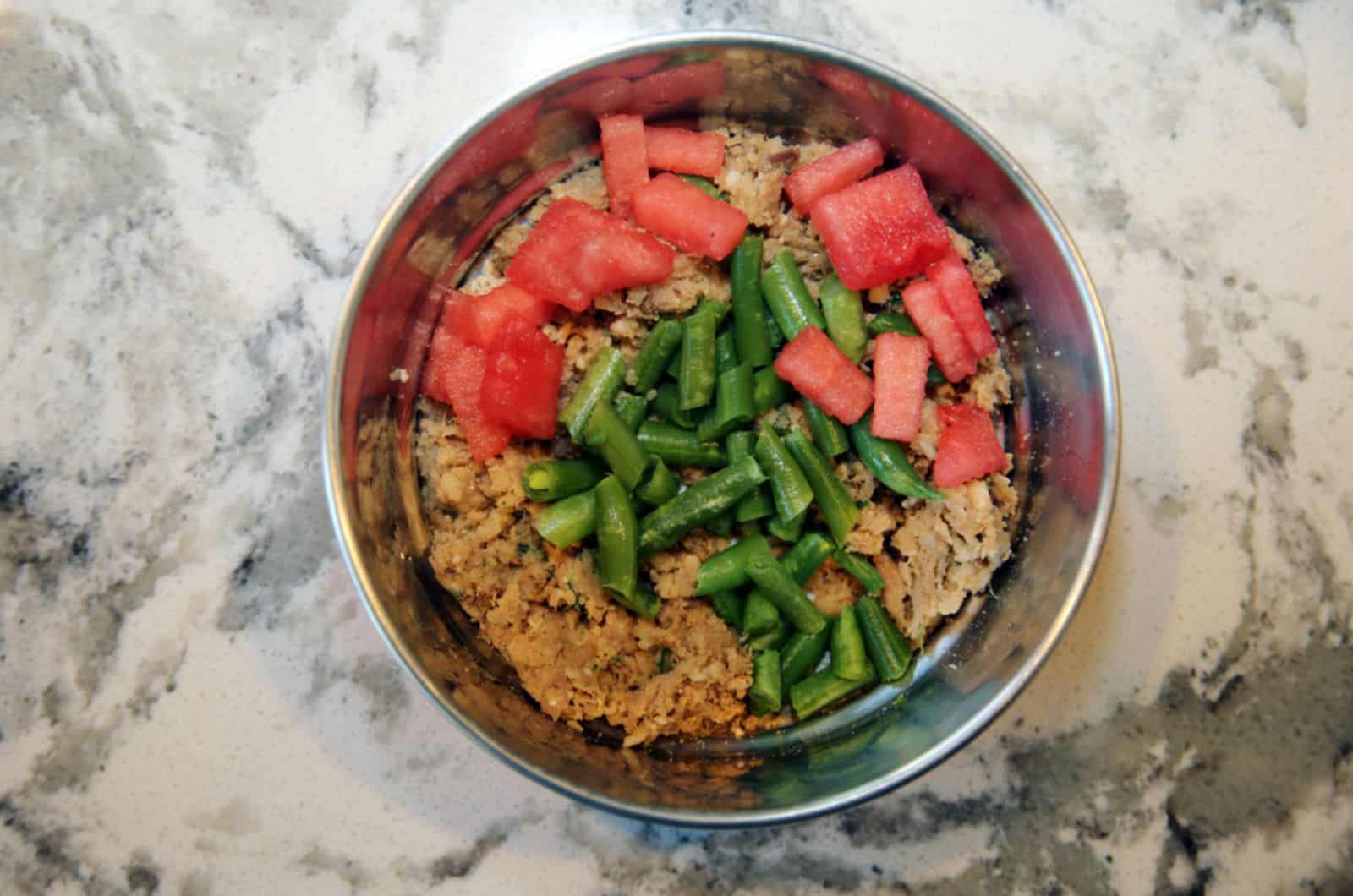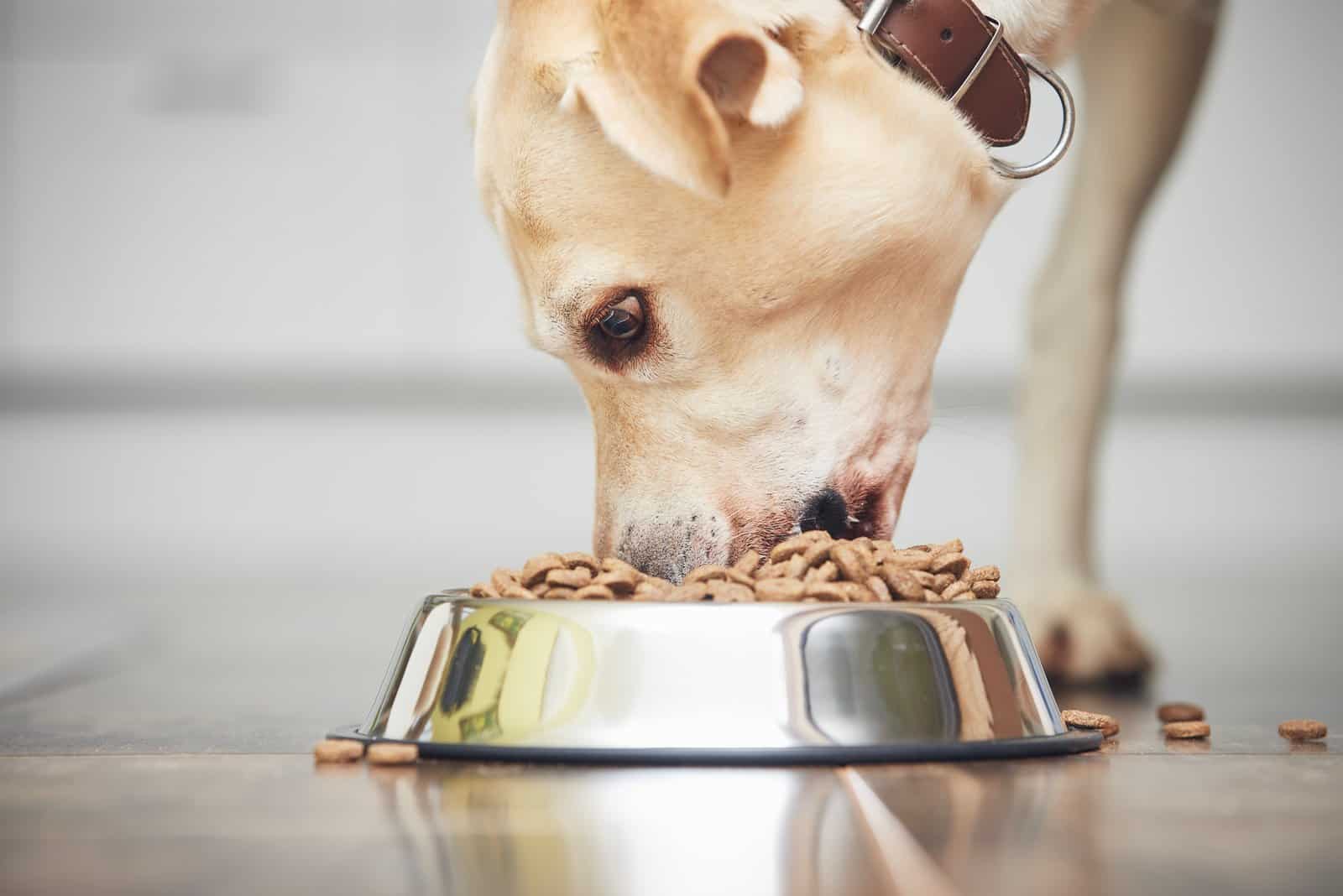Over time, humans have developed a vast range of different cuisines, each with its own unique flavor, texture, and aroma.
Some of these foods include exotic spices, which makes them delicious, and sometimes hot. Many of us love these taste sensations as well as the heat, but what about our furry friends?
Can dogs eat spicy food? We’ll investigate this to find out just how safe or dangerous spices can be, and whether you should be including them in your dog’s diet.
What do we mean by ‘spices’ and ‘spicy’?
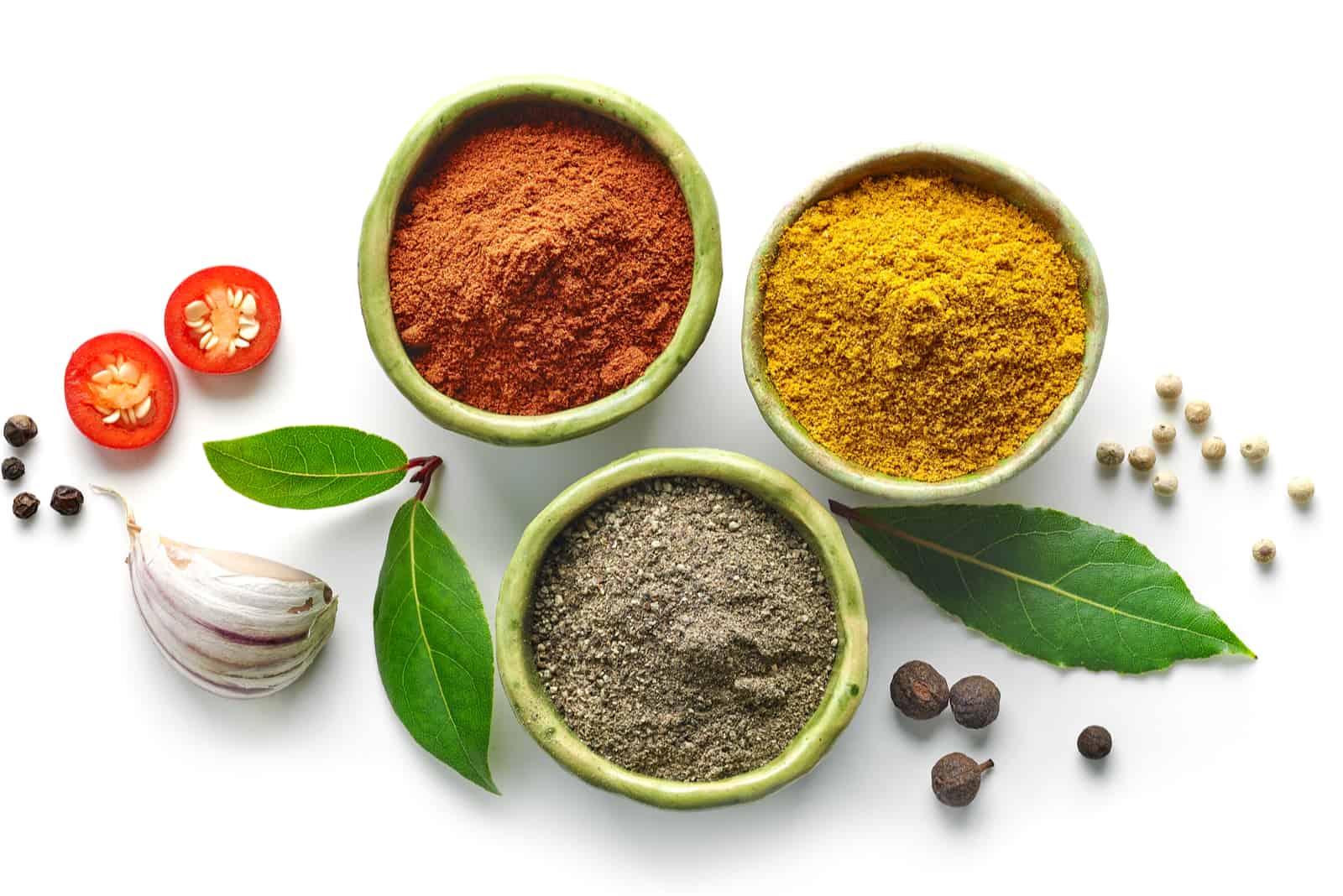
Firstly, let’s take a look at this point to avoid confusion. We create different flavors by adding seasoning in the form of herbs or spices.
By definition, spices are the dried parts of plants used for seasoning, which can also include dried herbs. We’ve all used some of these old favorites at times, such as basil, paprika, cumin, turmeric, and so on.
When we talk about something being spicy, we are usually referring to a particular type of seasoning that brings chili heat to the food.
Spices aren’t always hot, but when something is spicy, then you should expect some heat! This article aims to answer any concerns you have about feeding all kinds of spices to your beloved pooch, but with an emphasis on spicy food.
Do dogs taste things the same as us?

Our canine friends are famous for their fantastic sense of smell, something like 100,000 times more sensitive than our own.
You’d expect that their taste buds would be equally as amazing, wouldn’t you? In fact, whereas humans have about 9,000 taste buds, dogs only have 1,700, so their sense of taste is far simpler than our own.
The reason for this lies in their genes, going way back before they became domesticated. Having a mainly meat-based diet that was rich in sodium, wild dogs didn’t need any added salt.
They ate purely for sustenance, often eating things that we wouldn’t touch, and so their taste remained simple to allow them to cope with this.
Humans, on the other hand, ate a lot of plant-based foods that were low in sodium, and so began to find ways of adding salt to their diet. We sought variety in our food as our tastes developed.
This means that a dog’s sense of taste is not as complex as our own, though it is still divided into the four main flavors; salty, sweet, bitter, and sour.
As a result, they are not able to taste some things as well as we do, but their excellent sense of smell more than makes up for it! It isn’t that we taste things ‘better’; it is more that dogs have a different experience of food.
And, to show just how different they are; dogs possess taste buds specifically tuned to water!
What about spicy food? Is it safe for dogs to eat?
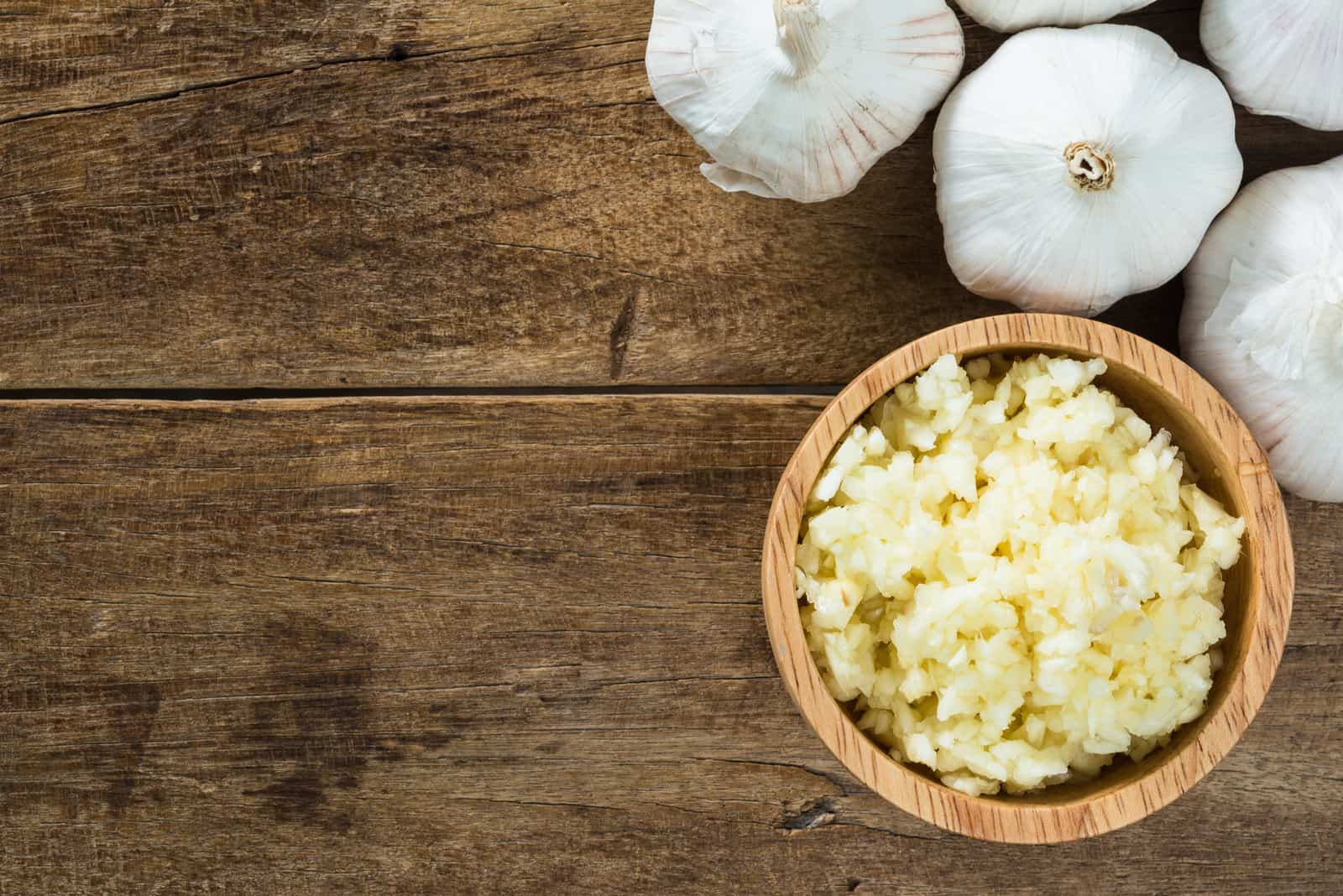
We now know that dogs, with their limited taste but fantastic noses, process flavors differently than we do. So, can they eat spicy food without any ill effects?
The answer may come as a surprise to some people, especially those who insist that dogs are okay with all human food.
The fact is, despite dogs being omnivores, a dog’s stomach is remarkably sensitive to many of the things we eat all the time.
Take garlic or onion powder, for example. We might add it to our diet to boost our immune system (and because we love the flavor!), but even a small amount in a dog’s food will destroy red blood cells and could cause anemia.
You would be forgiven at this point for being confused about garlic.
There is a lot of conflicting information out there, with some experts warning against giving any amount to dogs while others claiming it is beneficial to their health. To help you out, here’s a simple guide:
• Take a small amount of fresh garlic, for example, a single bulb finely chopped, and add just 1/4 teaspoon to dog food no more than twice a week.
This is ideal for a dog weighing around 20kg. Garlic is an antioxidant, anti-inflammatory, and it boosts the immune system and even has vitamins A, B, and C.
• Never use powdered garlic as this form is much more concentrated and it is difficult to gauge the amount; therefore,it is easy to use too much.
Also, garlic salt is sometimes used by mistake. This is basically a mixture of garlic and salt, which will be very bad for your dog’s health.
Who should I listen to?
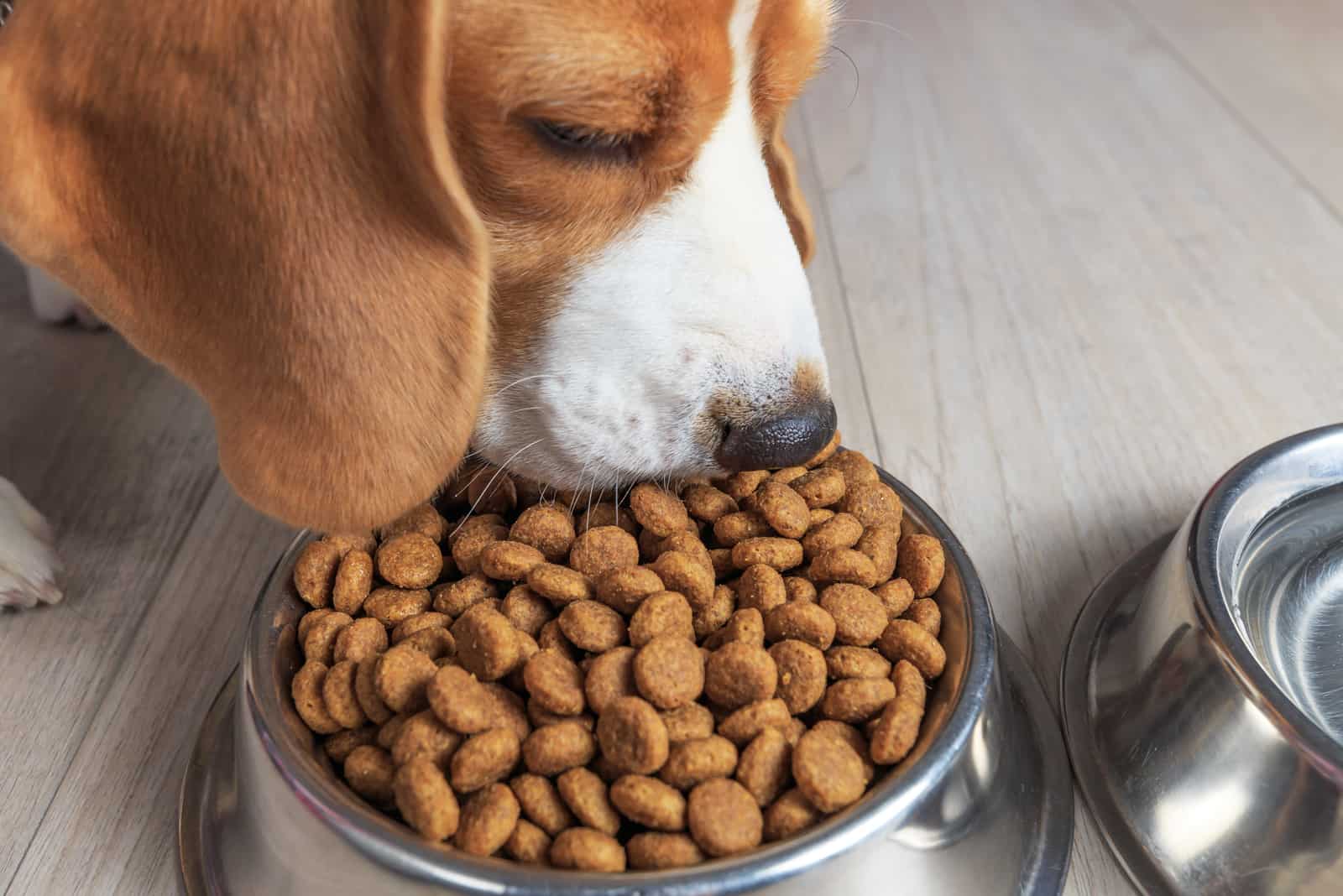
In your quest to discover the answer to whether dogs can eat spicy food, you may come across all sorts of bad and unqualified advice.
Much of it is anecdotal, such as claims like “I fed my dog habaneros and it lived longer!” or “My dog came back for seconds after wolfing down a plate of hot chili!”.
They forget one basic fact: dogs don’t chew their food as much as we do, and they also don’t taste the food as much as we do because they have fewer taste buds.
This means that the spices pass through the mouth pretty quickly, so the full effect is felt in the stomach and gastrointestinal tract.
Any dog owner who has unwisely fed hot spices to their pet and not witnessed the side effects should consider themselves very lucky.
Just because dogs do eat something doesn’t mean they should. Also, any advice can only be general; each dog is different, with a whole range of quirks depending on breed, size, history, genes, and so on.
If you want a healthy, happy pooch, then the best advice is don’t feed your dog spicy food.
What makes it dangerous to dogs?

Whether jalapenos, habaneros, or any type of chili pepper or chili powder, hot spices are no good for your dog’s digestive system.
This is due to capsaicin, a chemical irritant present in all plants of the capsicum family.
Because their digestive system is more sensitive, dogs will feel the heat more acutely and will most likely suffer from, at the very least, an upset stomach.
Though probably not life-threatening, the spiciness will cause them distress. No responsible dog owner would ever willingly inflict something on their beloved pet that would give them stomach pain or increased flatulence.
Many people take the fact that their dog happily munches on spicy peppers as a sign that it is safe for them to do so.
They also mistakenly believe that people food has the same health benefits to dogs as it does to humans. It’s important to remember that domesticated animals don’t possess the natural ability to know which foods are bad for them!
When a dog turns its nose up and refuses to eat a particular food, this is probably due to its smell. Dogs are naturally put off by anything that smells sour or bitter, and some may refuse to eat certain things because of this.
Can spicy foods kill a dog?
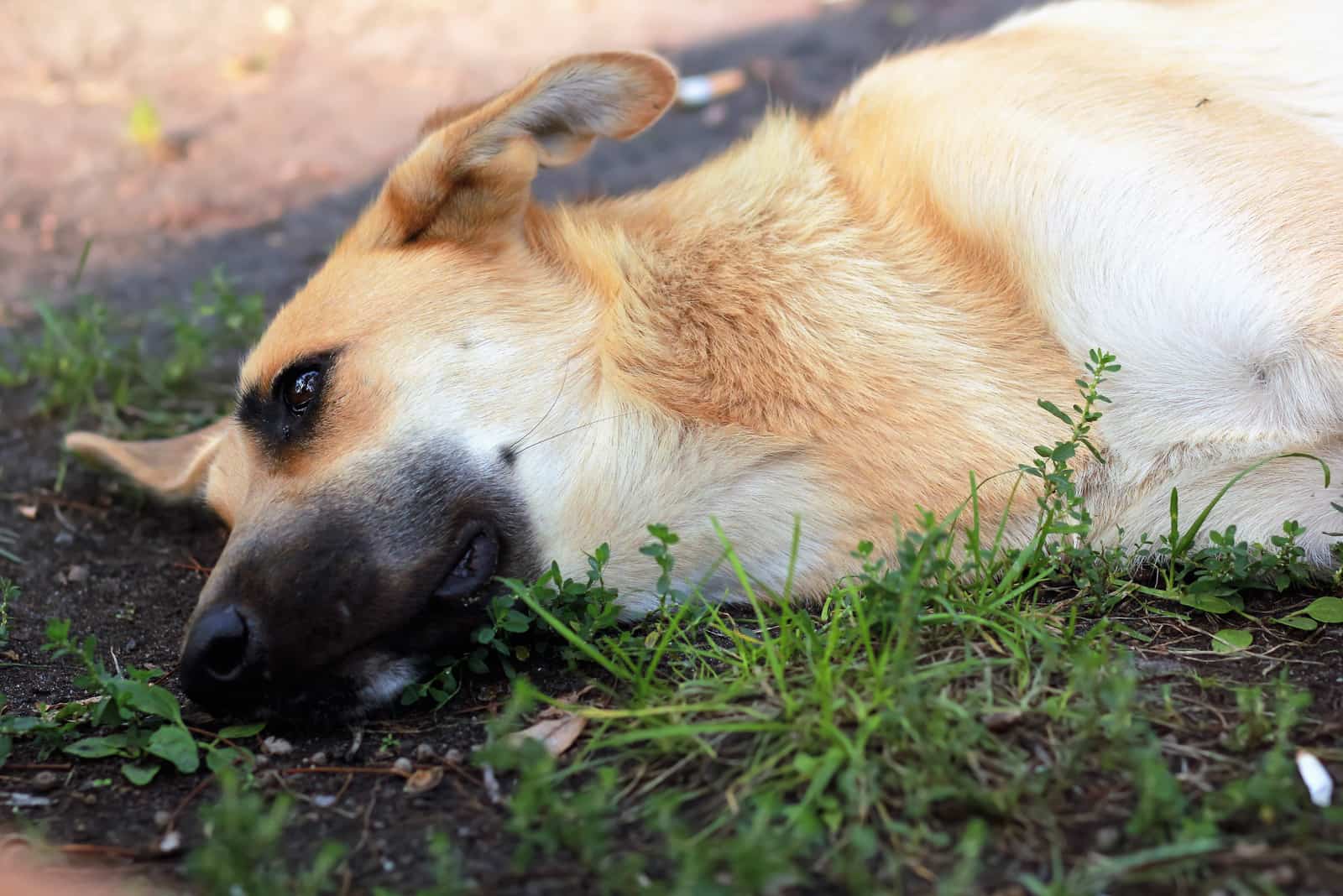
It is unlikely, but not impossible. More to the point, a diet that regularly includes spicy food may well shorten their lifespan.
In all probability, though, hot spices will mostly cause an upset stomach.
It might be good at this point to take a look at a few other types of popular spices and seasoning to see whether any of these carry the same dangers…
• Salt – though obviously not a spice, you should avoid giving your dog salty foods. High levels of sodium can cause salt poisoning, which can have a long-term impact on your dog’s health and even prove fatal. To compensate for salt, water is taken from the cells, causing dehydration. Convulsions, coma, and even death are possible.
• Nutmeg – avoid giving this to your dog at all costs! It contains myristicin, which is toxic to dogs. As little as 5 grams can upset their stomachs, but large amounts will lead to tremors, vomiting, disorientation, dehydration, seizures, problems with the central nervous system, and even death.
• Mace – as this is the outer seed covering of the nutmeg, the same rules apply!

Photo from: @angpao_thecorgi
• Cocoa Powder – not, strictly speaking, a ‘spice’, but worth a mention here. Cocoa powder contains a caffeine-like substance called theobromine. Dogs metabolise this much slower than humans, and as it is a methylxanthine (stimulates the heart rate), it can cause serious problems affecting not only the heart, but the kidneys and nervous system as well.
• Cinnamon – while this spice isn’t considered toxic to dogs, you shouldn’t be tempted to sprinkle it too liberally on their food. Small amounts could be beneficial to their health, though nothing has been proved conclusively. And, if you’re tempted to let them snack on baked goods flavored with cinnamon, then it isn’t the spice you should worry about, but the fat, sugar, and sweeteners within it that will be harmful.
• Paprika – also not toxic, but once again, in large amounts, it may cause irritation and lead to vomiting or diarrhea. As with all powdered spices, sprinkling them over food is never a good idea as the dog may inhale them or get them in their eyes or on their paws. This will cause them a lot of irritation and distress.
• Pepper – in its black or white powdered form, made from crushed peppercorns, pepper isn’t harmful in small amounts. In all probability, dogs won’t enjoy the burning sensation or the smell (remember their super-sensitive noses?). Too much in their food will upset their stomach.
What have we learned from all this?

The essential facts to take away from all this information is that dogs don’t need spices, whether ‘spicy’ or not. There is a small chance that they might get ill if they ingest too much.
In these cases, contact your veterinarian for advice, and make sure there is always fresh water on hand – which all responsible dog owners do anyway.
The health benefits of spices, especially in such tiny amounts, are debatable when it comes to dogs. Some spices, such as nutmeg and cocoa powder, should always be avoided, but don’t be too alarmed if your beloved pooch does consume a small quantity.
Don’t feel too sad that your furry friend is missing out on flavor combinations that you enjoy – in all honesty, they don’t really care! They just don’t appreciate subtle flavors as we do.
Yes, they can be very picky, and we often wonder if they are bored with their food. If this happens, try a different flavor or brand, but introduce it to them gradually.
If you do want to ‘treat’ them with a dash of spice, never use too much or anything hot and spicy, such as chili powder, hot sauce, or hot peppers. It isn’t worth the risk.
One point to keep in mind is that it isn’t always the spice involved, but rather, the food it’s placed in. The best diet for a healthy dog is to stick to its regular dog food, with the occasional treat now and then.
You really won’t be doing them any favors if you cook them people food all the time as the fats, oils, additives, salt content, and so on can lead to all sorts of complications, such as pancreatitis.
To finish on a more positive note…
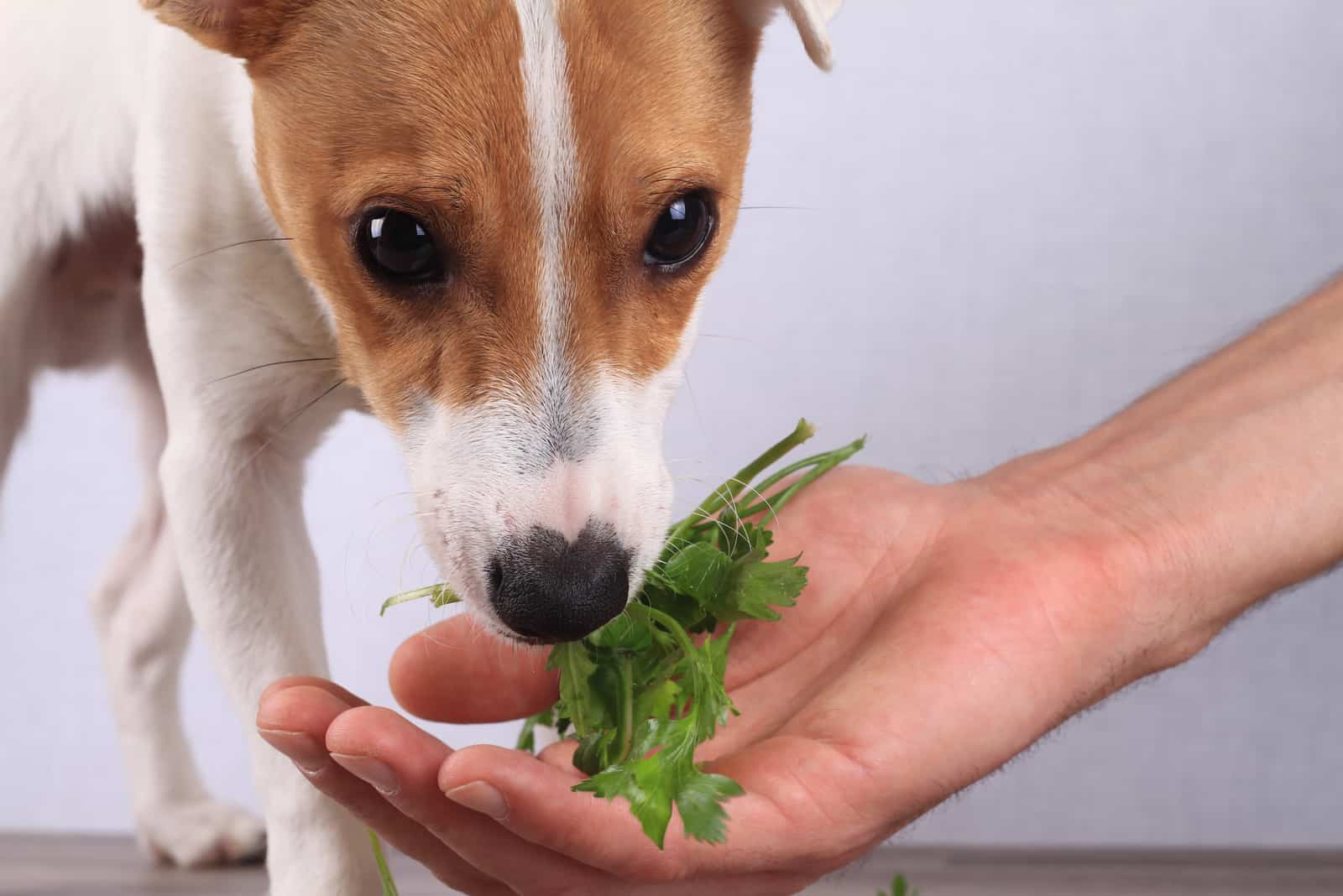
Two spices that you may want to add to your dog’s food are ginger and turmeric. Both are powerful antioxidants and have anti-inflammatory qualities. Ginger aids digestion and can be helpful in cases where your pet gets travel sick.
Also, a lot of dried herbs, which also count as ‘spice’ in culinary circles, can be beneficial to your dog’s health and are safe to use. Take a look at some of the following herbs to see just how amazing Mother Nature is!
• Oregano – antioxidant and anti-inflammatory
• Sage – reduces anxiety, eases gas and bloating, improves cognitive function
• Parsley – high in fiber, antibacterial, anti-inflammatory, high in protein, treats bad breath, and aids digestion. Be careful with quantities, though, as large amounts can be harmful
• Rosemary – eases anxiety, improves heart and nervous system
• Thyme – good for the brain, gut, and skin. It is an antibacterial and excellent for the digestive system
• Milk thistle – good for the liver and has proved helpful in cases of pancreatitis, though it should never be used without the advice of a qualified veterinarian
• Mint – can be used to freshen the breath
These are just a handful of the herbs and spices that can improve your dog’s health.
They may not be able to taste them much, but you’ll be giving them a better chance of staying healthy and getting more out of their lives, which makes us all happier.
Read Next: Kindfull Dog Food Review: A Closer Look At Affordable Pet Food
